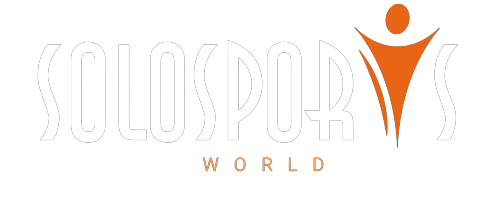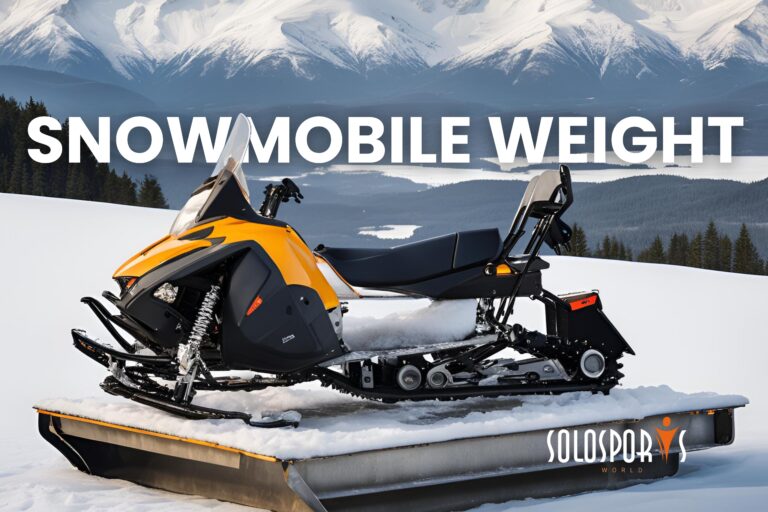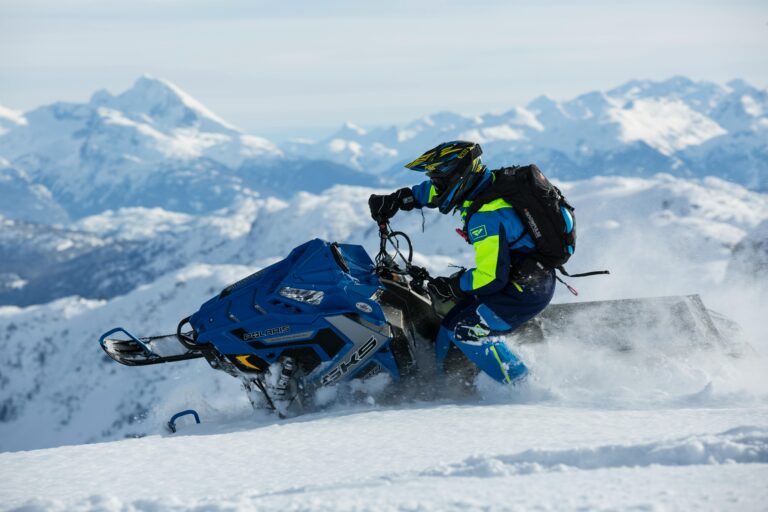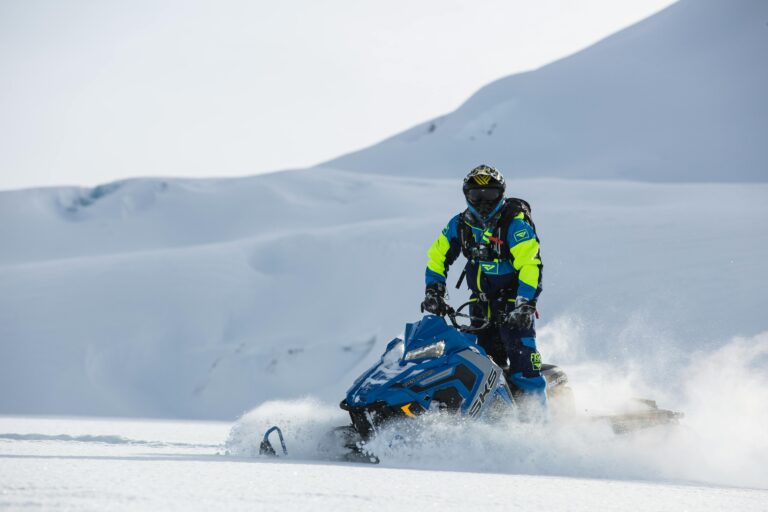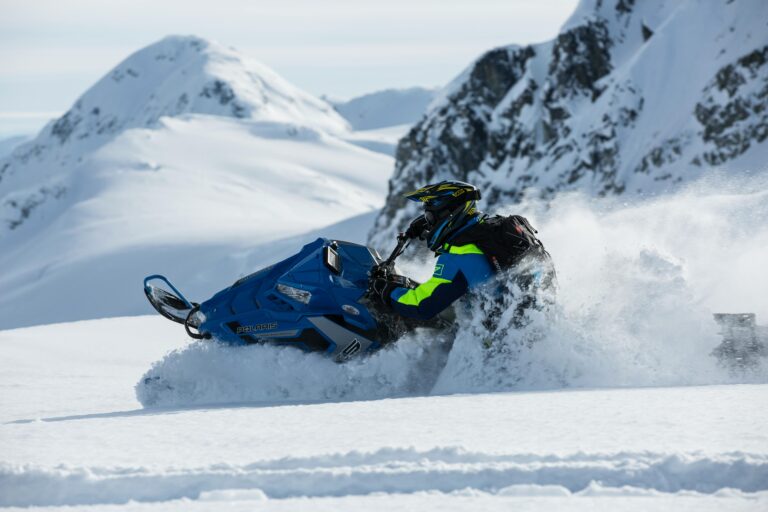Wondering if you actually need a driver’s license to take a snowmobile out for a ride? You’re not the only one! The rules can feel like a patchwork quilt, shifting from one state or province to another. Knowing what’s required can save you from unexpected hassles and get you out on the trails with confidence. Let’s clear up what you really need before you fire up that engine!
Do You Need a Driver’s License to Operate a Snowmobile?
Whether you need a driver’s license to operate a snowmobile varies by state and country, with some jurisdictions requiring specific snowmobile licenses or safety courses instead. For instance, states like Minnesota and Michigan mandate licenses, while Montana does not, but has age restrictions.
Here’s the deal: snowmobile laws aren’t uniform. Depending on where you live or plan to ride, the requirements can be quite different. Some places want you to hold a driver’s license. Others ask for special snowmobile permits or safety certificates.

To help you get a grip on this, let’s look at how different regions handle licensing:
Licensing Requirements for Snowmobiling
Across the U.S. and Canada, snowmobiling usually involves some sort of license or certificate. Whether it’s a driver’s license or a dedicated snowmobile safety certificate depends on your location. Here’s a quick glance:
| State | License Required? | Age Restrictions |
|---|---|---|
| Minnesota | Yes (Snowmobile safety certificate needed for minors) | 13+ can operate with a safety course |
| Michigan | Yes (Must have a valid driver’s license if 17+) | 17+ can operate; special course required for younger operators |
| Montana | No | Minors must ride with adults |
| New York | Yes (Safety certificate required) | 14+ can operate with a valid course |
| Wisconsin | Yes (Separate safety course available) | Minors aged 12-16 need a certificate and adult supervision |
| Canada (Ontario) | Yes | 12+ with adult supervision |
| Canada (Quebec) | Yes | 16+ can operate solo |
This table sums up some of the key rules, showing where and when you might need a special license or safety certificate.
Do Minors Need a License to Snowmobile?
The minimum age to operate a snowmobile typically ranges from 12 to 17, depending on the state. For instance, in Minnesota, minors as young as 13 can operate a snowmobile with a safety course, while Michigan mandates a minimum age of 17.
If you’re a parent or a young rider, this part matters. Most states set age limits to keep everyone safe. For example:
- Safety Course Completion: Places like Minnesota and Michigan let younger riders operate after finishing a safety course.
- Supervision Required: In Montana, kids have to ride with an adult.
- Special Permits: Some states hand out special permits that allow minors to ride under specific conditions.
If you want the full scoop, checking with your state’s wildlife or safety agency is a smart move—they usually have clear info on age limits and courses.
Is a Driver’s License Enough for Snowmobiling?
Requirements vary by region. In many U.S. states, such as Minnesota and Michigan, a driver’s license is necessary. However, other states, like Montana, have no license requirement but enforce age restrictions. Always check local regulations.
People often assume a regular driver’s license covers snowmobiling, but that’s not always the case. Here’s the lowdown:
- Driver’s License Requirements: In states like Michigan, you need a valid driver’s license if you’re over 17. Montana doesn’t require one.
- Special Snowmobile Licenses: Some places want you to get a dedicated snowmobile license, even if you have a drivers’ license.
- Look Up Local Rules: These laws can switch up, so always double-check before you ride.
If you want a reliable source, the National Association of State Snowmobile Associations has a handy guide at snowmobile.org.
How Do Renting Regulations Differ from Owning a Snowmobile?
Yes, most rental facilities require a valid snowmobile license or a safety course completion to rent a snowmobile. In some locales, fulfilling basic age and safety training requirements can be accepted in lieu of a standard driver’s license.
Renting a snowmobile isn’t exactly the same as owning one. Rental places often have stricter rules:
- Proof of Licensing or Training: Most rentals want to see you’ve got the right license or’ve completed a safety course.
- Verification Process: You’ll likely need to show ID and certificates before they hand over the keys.
- Age Limits: Some require renters under 18 to have an adult co-sign or supervise.
If you’re renting, it pays to call ahead and check what that company expects from you.
Key Differences Between Safety Courses and Licensing
While all states require snowmobile safety courses for young riders, these courses may also serve as a substitute for obtaining a snowmobile operating license in some jurisdictions.
Safety courses aren’t just busywork — they can actually replace a license in some states, especially for younger riders. Here’s why they matter:
- Where to Find Them: Lots of snowmobile clubs and state agencies offer these courses.
- License Substitute: In some cases, passing a safety course means you don’t have to get a separate license.
- They Work: Stats show that states mandating these courses see fewer accidents. The National Association of State Boating Law Administrators, for example, has research backing this up at nasbla.org.
What Happens If You Operate Without a License?
Yes, penalties for operating without a valid license can include fines, confiscation of the snowmobile, and even misdemeanor charges in some areas. Regulations vary by state, so it’s crucial to understand your local laws to avoid legal troubles.
Riding without proper licensing isn’t just risky; it can cost you big:
- Fines: Expect steep fines in many places.
- Snowmobile Seizure: Authorities might take your snowmobile.
- Legal Trouble: Repeat offenders could face misdemeanors, which mess with your ability to get licensed in the future.
Knowing these risks is a good incentive to play by the rules.
Summary of Licensing Regulations Worldwide
Licensing requirements vary significantly across North America and beyond, often depending on age and operator training. Historical law changes are influencing more jurisdictions to adopt safety courses and stricter licensing regulations.
Around the globe, snowmobile laws are all over the map but share some common trends:
- In North America: Some states require licenses, like New York and Michigan, others don’t, like Montana.
- Canada: Provinces set their own rules; Ontario and Quebec have clear age and training standards.
- Elsewhere: Countries like Sweden and Finland have strict safety courses and licensing.
| Country/State | License Required? | Age Restrictions | Notes |
|---|---|---|---|
| USA: Minnesota | Yes | Min. age 13 with course | Must pass a safety training course |
| USA: Michigan | Yes | Min. age 17 | Must have valid driver’s license |
| USA: Montana | No | Must ride with adults | Minors can’t operate alone |
| Canada: Ontario | Yes | Min. age 12 | Supervised riding for younger operators |
| Canada: Quebec | Yes | Min. age 16 | Operators must complete a course |
| Sweden | Yes | Min. age 16 | Mandatory safety course |
| Finland | Yes | Min. age 15 | Specific snowmobile license required |
Recommended Snowmobiling Resources and Courses
Reputable resources for obtaining a snowmobiling license can include state wildlife agencies and dedicated snowmobile training programs. Many offer easily accessible online courses and local classes.
Ready to get certified? Here’s where to start:
- National Snowmobile Safety Courses: Often run by state wildlife groups or local clubs. Many are online these days.
- State Websites: Places like snowmobilecourse.com list courses and licensing info by state.
- Community Forums: Jump into snowmobiling groups online—people share tips on the best courses and what to expect.
Frequently Asked Questions
Do I need a driver’s license to ride a snowmobile?
Requirements vary by region. In many U.S. states, such as Minnesota and Michigan, a driver’s license is necessary. However, other states, like Montana, have no license requirement but enforce age restrictions. Always check local regulations.
What is the minimum age for snowmobiling?
The minimum age to operate a snowmobile typically ranges from 12 to 17, depending on the state. For instance, in Minnesota, minors as young as 13 can operate a snowmobile with a safety course, while Michigan mandates a minimum age of 17.
Are there penalties for snowmobiling without a license?
Yes, penalties for operating without a valid license can include fines, confiscation of the snowmobile, and even misdemeanor charges in some areas. Regulations vary by state, so it’s crucial to understand your local laws to avoid legal troubles.
Do I need a license to rent a snowmobile?
Yes, most rental facilities require a valid snowmobile license or a safety course completion to rent a snowmobile. In some locales, fulfilling basic age and safety training requirements can be accepted in lieu of a standard driver’s license.
If you take away just one thing, let it be this: knowing the rules helps you ride safely and keeps the fun going. So gear up, get licensed if needed, and enjoy the snow!
Want to dig deeper? Check out these videos for tips and advice!
Here’s a great beginner’s intro to snowmobiling basics!
Happy riding—and stay safe out there!
